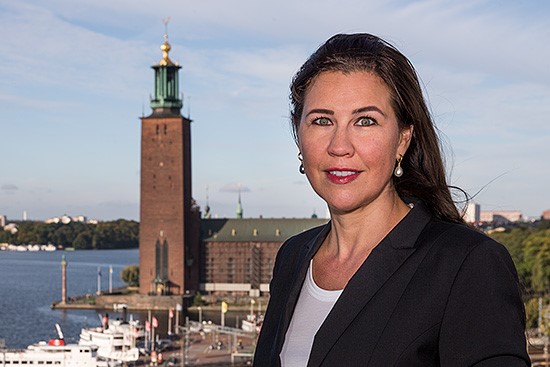Protecting and promoting human rights is a cornerstone of Swedish foreign policy. Sweden strives to be a strong voice and a global leader that stands up for and defends human rights, democracy and the principles of the rule of law throughout foreign policy. This forms a central part of our engagement also in Myanmar.
This week, I am very happy to pay my first visit to Myanmar. The purpose of my visit is to get a better understanding of the progress and the challenges in Myanmar regarding human rights. I will meet with representatives from the government, civil society and international organisations to get a good understanding of the situation. This is important to Sweden, since protection and promotion of human rights in Myanmar is a fundamental part of Sweden’s political engagement as well as development work in Myanmar.
Some 150 years ago, my country was poor. A quarter of our population fled hunger and religious oppression and went on to build new lives in North America. Since then, we have built a strong democracy with transparent institutions and a vibrant civil society, based on human rights and gender equality. This has been right and fair, but also smart — in macro-economic terms. Our Swedish experience tells us that for development to be sustainable, a human rights perspective needs to be applied.
Many countries have indeed associated development with human rights in building their societies. But despite progress in international poverty alleviation, today we are seeing human rights, democracy and the principles of the rule of law beginning to wane across the globe. This is also noted in international fora, in which international human rights commitments are being called into question more frequently than before.
Democracy is pushed back and human rights are questioned and challenged. It becomes more difficult for civil society to organise. Shrinking space for civil society engagement makes groups of people that are already vulnerable twice as vulnerable; women, for example, who face discrimination and attacks purely for being women and also for being representatives of civil society. When freedom of expression is restricted despite international commitments to the contrary, and those who defend and promote human rights or openly voice criticism are threatened, harassed and persecuted, society — and states — weaken.
The internet and new technologies are sometimes used in order to constrain rather than promote people’s freedoms and rights by illegal means, often through extensive surveillance and restrictions on freedom of expression, freedom of opinion and the right to information. This not only affects organised civil society, but also individual citizens. Therefore, Sweden is increasing its support to human rights defenders globally — offline and online — to curb this trend.
I am therefore particularly happy that a central part of Swedish support to Myanmar aims to promote and develop press freedom and freedom of expression, online as well as offline. Sweden is a long-standing partner to Myanmar in this area.
Gender equality has benefited our society as a whole. But globally it remains a vision rather than a reality. Violence, oppression and systematic subjugation continue to be part of the daily lives of countless women and girls. Gender equality and women’s enjoyment of human rights is another cornerstone of Sweden’s engagement here in Myanmar, including to promote women’s participation in the peace process.
States questioning international norms also has an impact on working life. Employees are prevented from joining unions and working for better working conditions. Anti-union discrimination, harassment, violence and threats are common in many places. Many people, sometimes including children, are working in inhumane conditions.
[related]
International development cooperation is an important tool in combatting these ills. As one of the largest global donors, Sweden has clear added value to offer, not to mention extensive knowledge and experience of helping to shape international development cooperation. This is particularly relevant in terms of promoting and embedding the human rights perspective, whereby democracy and human rights are seen as fundamental conditions for development.
The position Sweden enjoys, by virtue of long-term bilateral relations and a tradition of a clear policy to defend human rights, democracy and the principles of the rule of law, also facilitates cooperation in sensitive areas. Sweden’s lasting and long-term engagement on these issues and its reputation as an inclusive and gender-equal country has seen us inspire considerable trust among many states and actors.
Sweden is and will continue to be a strong voice that stands up for, defends and promotes human rights, democracy and the principles of the rule of law — including here in Myanmar.
Annika Ben David is the Swedish ambassador-at-large for human rights.



